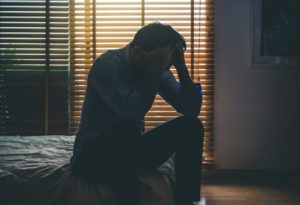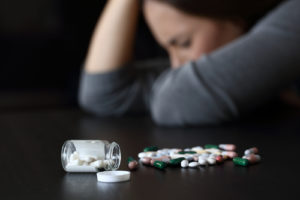Benzodiazepines are among the most prescribed medications in the United States.
One of the major uses of benzodiazepines is to treat anxiety associated with mental health disorders. The majority of individuals who are prescribed benzodiazepines; for this reason, do not abuse them.
Benzodiazepines
Benzodiazepines include widely known drugs, such as Xanax, Valium, and Ativan, along with others that are not as familiar to most people, such as Tranxene.
All benzodiazepines are listed as controlled substances by the U.S. Drug Enforcement Administration (DEA). This means they cannot be legally obtained without a prescription from a physician.
Benzodiazepines have several major medical uses, which include:
- Treating anxiety associated with numerous different types of mental health disorders
- Reducing seizure activity
- Helping people fall asleep as sedatives or for other purposes, such as anesthesia
- Addressing withdrawal symptoms from alcohol or other drugs
How Do Benzodiazepines Work?
All benzodiazepines exert their primary effects on neurons in the brain and spinal cord. These neurons release the neurotransmitter GABA (gamma-Aminobutyric acid), the primary inhibitory neurotransmitter in the brain and spinal cord. When it is released, neurons slow down.
This accounts for their medical uses in lessening anxiety, reducing seizures, promoting sedation, and controlling symptoms of withdrawal from alcohol.
If taken correctly, benzodiazepines can be beneficial to someone with continual anxiety or sleeplessness.
Below are some of the commonly prescribed benzos, listed alphabetically by generic name, with the brand name in italics. A full list is featured on RxList.com.
- Alprazolam (Xanax)
- Chlordiazepoxide (Librium)
- Clonazepam (Klonopin)
- Diazepam (Valium)
- Lorazepam (Ativan)
- Temazepam (Restoril)
- Triazolam (Halcion)
Side Effects
Benzos can produce some unpleasant side effects. Although, not everyone taking them will feel the below symptoms. Some may feel them, but in a mild form, and others may feel them more strongly.
How these symptoms affect someone depends on the physicality of the person and other unique qualities.
The Most Common Side Effects Are:
- Dizziness
- Sedation
- Weakness
- Unsteadiness
- Vision problems
In addition, some people may experience these other side effects:
- Drowsiness during the first few days of treatment
- Headache
- Sleep disturbance
- A feeling of depression
- Irritability
- Aggression
- Confusion
- Excitement
- Memory impairment
- Loss of orientation
Anxiety Disorders and Substance Abuse

Anxiety disorders include panic disorder, phobias, and social anxiety.
Several other psychological disorders are associated with significant levels of anxiety, even though anxiety may not be the defining feature of the disorder. This includes trauma- and stress-related disorders, personality disorders, and obsessive-compulsive disorders.
Individuals who are diagnosed with anxiety disorders, or psychological disorders where the primary feature is dysfunctional anxiety, have high rates of substance abuse.
Rates of substance abuse occurring in people diagnosed with anxiety disorders are estimated to be between 20 and 40 percent, depending on the disorder.
The primary substance of abuse in individuals with these disorders is alcohol, although other drugs are also abused, including prescription medications like benzodiazepines.
According to the National Institute on Drug Abuse (NIDA) and the Substance Abuse and Mental Health Services Administration (SAMHSA), the vast majority of individuals who abuse prescription medications have not been prescribed these drugs. Instead, most of these individuals:
- Receive or steal them from a friend or relative who has a prescription
- Buy the medication illegally
- Get it by some other illicit means
This is not to say that some individuals with anxiety disorders do not abuse benzodiazepines and develop a sedative, hypnotic, or anxiolytic use disorder, which is the clinical term for addiction to drugs like benzodiazepines.
According to the 2017 National Survey on Drug Use and Health, drugs like benzodiazepines are abused by 0.5 percent of the entire U.S. population.
In some cases, individuals may begin to abuse benzodiazepines to deal with issues associated with dysfunctional anxiety. In other cases, individuals with substance use disorders will develop problems with anxiety later on. Thus, there is no correlation except in some isolated cases.
Risk of Overdose
Benzodiazepine overdose can occur if someone takes too much of the drug at one time to feel an increase in its effects. It is known that the longer someone takes the drug, the more tolerant their brain becomes of it. This, therefore, can lead to heightened anxiety, which can lead to taking more of the benzo. Or, the individual could take the benzo with alcohol, which can lead to an overdose.
Healthline states that several factors influence an overdose. They are:
- How much of the drug was taken
- Was the drug taken with alcohol or with any other medications, such as an antidepressant
- Your body chemistry
Individuals may experience overdose symptoms that can range from mild to severe.
Mild Symptoms:
- Slurred speech
- Confusion
- Poor coordination
- Rapid heartbeat
- Uncontrolled muscle movements
- Slow reflexes
- Tremors
Severe Symptoms:
- Chest pain
- Abnormal heart rhythm
- Difficulty breathing
- Seizures
- Hallucinations
- Coma
Physical Dependence is Not an Addiction
Displaying signs of physical dependence, such as tolerance and withdrawal symptoms, is not necessarily a sign that a person is addicted to a medication.
Physical dependence is the result of long-term use of a medication, even if long-term use is for medical reasons. An individual with an addiction uses a substance in a way that leads to significant distress or impairment in functioning.
A person using a benzodiazepine as a long-term medication for a medical condition, which is compliant with their physician’s instructions and has developed a dependence on the drug, would not be diagnosed with a substance use disorder.
It should be noted that any long-term use of benzodiazepines for anxiety can increase the risk that an individual might abuse the drug. This would increase the risk for the development of a substance use disorder later on.
Possible Candidates for Benzodiazepine Abuse

Benzodiazepines should not be used as a long-term treatment for anxiety.
They should only be used to help an individual in the early stages of treatment. Behavioral interventions like therapy should be used to manage anxiety on a long-term basis.
People who have prescribed benzodiazepines for long-term treatment are more likely to start misusing the drugs and develop issues with substance abuse eventually.
Misuse of a drug refers to the occasional use of a drug that is outside its prescribed purposes, whereas abuse implies a more chronic pattern of misuse.
Significant tolerance to benzodiazepines can lead individuals to find ways to make the drug more effective. This could include combining benzodiazepines with other drugs, such as alcohol, or taking them in higher amounts than advised.
For instance, older people appear to have significant issues with benzodiazepine misuse. Younger people who are prescribed benzodiazepines report less abuse of the drug.
Younger individuals, between the ages of 18 and 50, are more likely to be prescribed benzodiazepines for short-term use of four months or less. Elderly individuals, on the other hand, are more likely to be prescribed benzodiazepines for extended periods that often last longer than a year.
This means that older individuals who have prescribed benzodiazepines for the treatment of anxiety may be more susceptible to developing substance abuse issues because they take the drug for extended periods. They are, therefore, more likely to develop a physical dependence on them.
Comorbid Conditions and History
Finally, individuals who previously have been diagnosed with substance use disorders, or those who have been diagnosed with several different co-occurring psychiatric disorders, should be prescribed benzodiazepines with discretion by their physicians.
Those who have prior substance use disorders are more vulnerable to developing substance abuse issues with numerous medications, including benzodiazepines, even if these are prescribed for anxiety.
Individuals who have multiple diagnoses, such as post-traumatic stress disorder (PTSD), depression, and anxiety issues, are also more likely to have substance abuse issues and may be more vulnerable to abusing prescription medications like benzodiazepines.
Conclusion
The relationship between anxiety and an addiction to benzodiazepines is not as strong as some may believe. Most people who are prescribed benzodiazepines do not abuse them, even if they develop a mild physical dependence on them.

